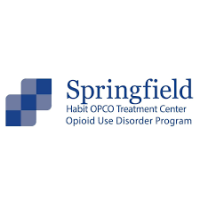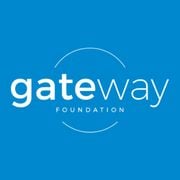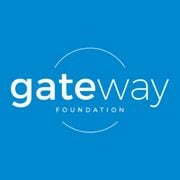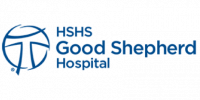Triangle Center
Drug Rehab Center in Springfield, Illinois
- Opioid Addiction
- Alcoholism
Triangle Center is a leading addiction treatment facility in Springfield, IL, dedicated to helping individuals struggling with alcoholism and opioid addiction achieve lifelong sobriety through holistic approaches such as individualized care plans, medication assisted treatment (MAT), family counseling, and evidence-based treatments.
About Triangle Center in Illinois
Triangle Center, a private practice situated in Springfield, IL, has been dedicated to treating addiction and mental health conditions since its establishment. With a focus on creating individualized therapy plans for each patient, the center offers a comprehensive array of care options to support those struggling with alcoholism, opioid addiction, substance abuse, and mental health issues.
• Accredited by JCAHO, SAMHSA, and licensed by the State
• Provides evidence-based therapeutic approaches, including cognitive behavioral treatment and dialectical behavioral therapy
• Offers a range of residential programs, from long-term (30+ days) to intensive outpatient care
• Delivers telehealth and wellness services to support patients' recovery journey
Triangle Center's experienced professionals are committed to providing the highest quality care to help patients achieve lasting recovery. They offer a variety of treatment options, including outpatient care, aftercare support, dual-diagnosis, and detox services, ensuring that each individual receives the care they need.
The center specializes in treating a wide range of addictions, such as alcoholism, opioid addiction, and drug addiction, as well as mental health conditions. To support their patients' recovery, Triangle Center employs evidence-based therapeutic approaches, including cognitive behavioral treatment, dialectical behavioral therapy, couples therapy, trauma therapy, substance use counseling, individual therapy, medication-assisted treatment, relapse prevention, and family therapy.
Genders
Ages
Modality
Additional
Accreditations
State License
SAMHSA

JCAHO
Conditions and Issues Treated
Opioid addiction has become a significant health problem in the United States. In 2015, there were 91 opioid overdose-related deaths per day, with a substantial increase in mortality rate in 2014.
When opioid addiction has reached a point where a person’s life becomes unmanageable, treatment options are available to help them get sober. Treatment that includes medical care with medications and counseling can help a user transition into sobriety.
Levels of Care Offered
This center offers a variety of custom treatment tailored to individual recovery. Currently available are Aftercare Support, Outpatient, with additional therapies available as listed below.
Outpatient treatment is often used for drug addicts in drug rehab. Outpatient treatment consists of counseling and therapy sessions. This form of treatment is also called ‘day-treatment’. The outpatient treatment process begins with the addict’s initial detox period, lasting about ten days.
Outpatient treatment is used for those who are at moderate risk for ‘slipping back’ into the addiction, for those who:
- Are not currently experiencing any side effects from withdrawal and can handle social pressure
- Can handle stressors that might trigger relapse
- Have a stable living environment or have moved out of their previous environment, which was not conducive to being sober
- Have a support system that allows them to go to a facility a few times a week while still keeping their current responsibilities
- Have no legal obligations, being either on parole or probation, that require them to seek treatment at a mandatory facility
- Are not currently experiencing any side effects from withdrawal and can handle social pressure
- Have a stable living environment or have moved out of their previous environment, which was not conducive to being sober
Completing a drug or alcohol rehab program is only the first step. Then comes aftercare support. These services include sober living accommodations, career counseling, and AA/NA programs for those struggling with sobriety or who want help maintaining it after initial rehab at an addiction facility.
They can last up to a year or more depending on what’s needed most urgently after the earlier stages are completed.
Therapies & Programs
Because no single treatment is effective for all addicts, the goal of treatment and therapy should be to figure out what works best for each individual. Tolerance and withdrawal levels differ from person to person, affecting the treatment intensity required. Addiction treatment should aim to help addicts develop healthy coping mechanisms for dealing with their addiction and its underlying causes.
Couples therapy works with clients and significant others in a professional capacity to improve relationship dynamics. This can be helpful for addicts who are trying to marry the idea of recovery into their work, family, social lives – any aspect that has to do with relationships. Through counseling sessions, addicts will have an opportunity to talk about their addiction with professional partners.
Family therapy is beneficial for people who are in addiction treatment services because it offers addicts the opportunity to work with their family members to better understand what led them to make choices that contributed to their addiction.
This type of therapy helps family members reach a deeper understanding of how they can best support their loved one during recovery. It also helps the addict better understand their own motivations and triggers that led them to turn to substance abuse.
Family therapy can help addicts in the following ways:
- Assists family members in processing difficult feelings so they don’t blame or resent recovering addicts
- Assists family members in understanding how addiction has impacted the addict and everyone who is involved with them
- Allows the addict to take responsibility for their actions, while encouraging improved communication skills
- Helps family members understand how to best support an individual in recovery so addicts don’t relapse again.
Group therapy can help build a stronger support system and give addicts in Springfield, IL insight into their addiction that they gain through shared conversations. Group therapy occurs in a controlled group environment, exclusive of one on one meetings. This makes it safer for patients to feel comfortable sharing the struggles they’re going through and gaining perspective.
Payment Options Accepted
For specific insurance or payment methods please contact us.
Additional Details
Specifics, location, and helpful extra information.
Springfield, Illinois 62704 Phone Number(217) 698-8404 Meta DetailsUpdated April 15, 2024
Staff Verified
Triangle Center Patient Reviews
There are no reviews yet. Be the first one to write one.
Springfield, Illinois Addiction Information
In 2016, more than 2,350 Illinoisans died from drug overdoses. More than 5,500 deaths annually occur in Illinois due to the abuse of alcohol and other drugs. 7.17% of Illinois residents reported using illicit drugs in the past month (2018). Substance abuse costs the state approximately $3.5 billion every year.
In 2019, the Springfield Police Department reported that heroin was the most common drug involved in overdoses. The most commonly abused drugs in Springfield, IL, are heroin, cocaine, methamphetamine, and prescription drugs. There are many different types of drug treatment available in Springfield, IL, and the best way to find the right one for you is to speak with a professional.
Treatment in Nearby Cities
- Berwyn, IL (174.1 mi.)
- Salem, IL (90.2 mi.)
- Watseka, IL (124.2 mi.)
- Sparta, IL ( mi.)
- Carpentersville, IL (178.0 mi.)
Centers near Triangle Center




The facility name, logo and brand are the property and registered trademarks of Triangle Center, and are being used for identification and informational purposes only. Use of these names, logos and brands shall not imply endorsement. RehabNow.org is not affiliated with or sponsored by Triangle Center.





